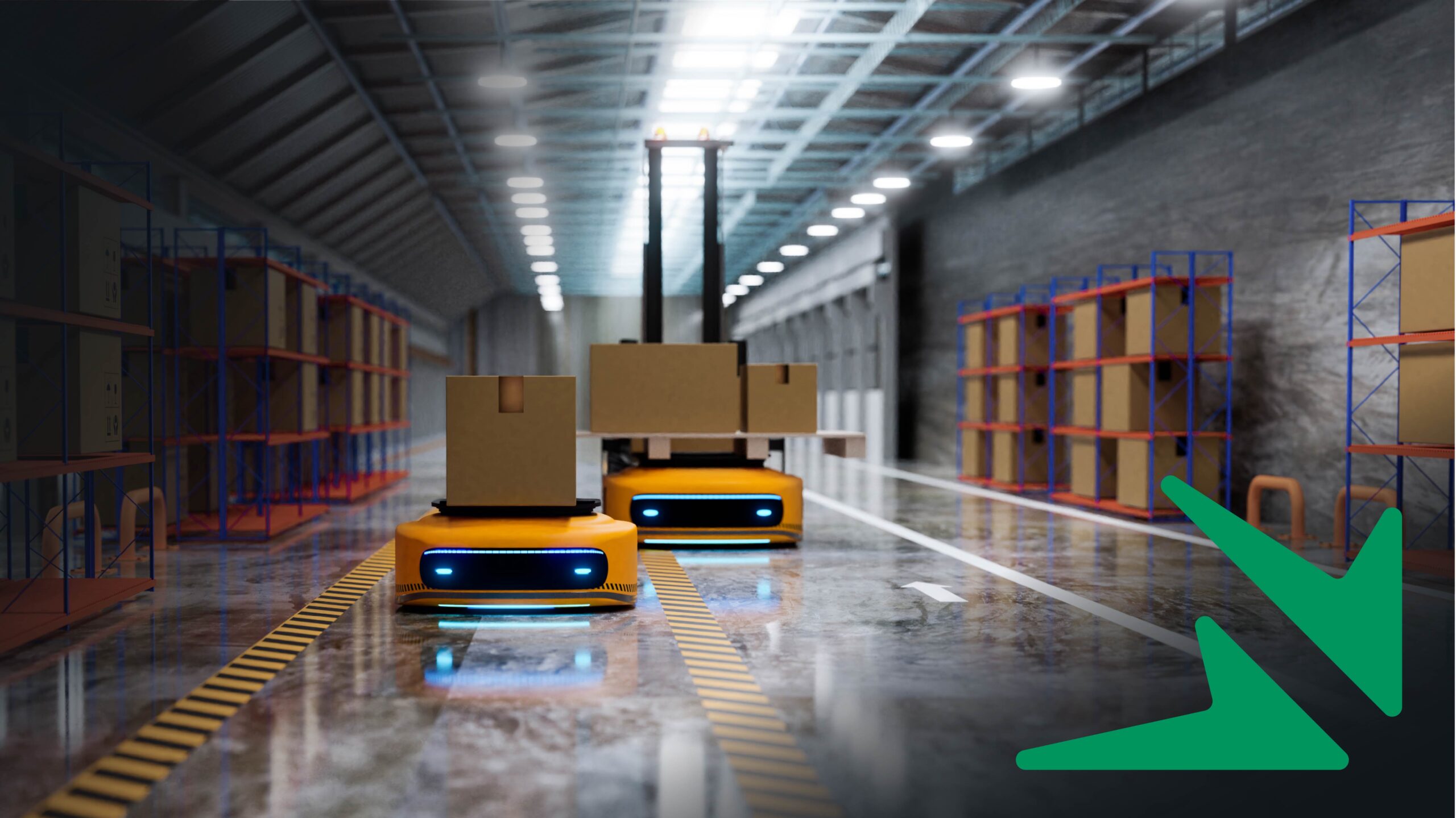Logistics in the Digital Age: Reshaping the Industry
Logistics forms the backbone of global trade. Rising customer expectations, the growth of e-commerce, the need for transparency across supply chains, and environmental concerns are pushing companies toward digitalization. Digital transformation is no longer just about speeding up operations; it also minimizes risk, optimizes costs, and strengthens competitiveness—making it a strategic necessity.
Traditional logistics relied on manual processes and physical documentation, leading to time loss and higher error rates. Today, cloud-based software, IoT sensors, artificial intelligence, and blockchain enable end-to-end digitalization across logistics. From customs clearance to warehousing, from route planning to last-mile delivery, every stage can now be managed with digital tools.
Especially in the post-pandemic period, supply chain disruptions proved that digitalization is not a luxury but a prerequisite for resilience. Rising fuel costs, global competition, and green-logistics regulations are accelerating investments in digital tools. It is no longer sufficient to deliver on time; services must also be environmentally conscious, transparent, traceable, and customer-centric—the new normal of the industry.
The Impact of Digitalization on the Logistics Sector
For companies seeking a competitive edge, digitalization has become a necessity rather than a luxury. While traditionally managed operations bring time loss and high error risk, digital solutions allow processes to run faster, more reliably, and with a stronger customer focus.
Real-Time Visibility and Transparency:
Delays, losses, and customer dissatisfaction are among the sector’s most critical risks. With IoT sensors and GPS-enabled vehicle tracking, data such as shipment location, temperature, and humidity can be monitored in real time. This transparency builds trust on the customer side and allows logistics providers to intervene quickly when issues arise. In international transport, digitally monitored customs processes also eliminate lost documents.
Data-Driven Strategies:
Big Data and AI are transforming logistics decision-making. From analyzing warehouse throughput to optimizing routes, data delivers critical advantages. For example, analyzing past shipments reveals seasonal peaks, enabling proactive capacity planning. Variables such as traffic, weather, and port waiting times are incorporated to recommend alternative routes that shorten transit times.
Operational Efficiency and Cost Control:
One of the biggest benefits of digitalization is lower operating costs. Replacing paper with e-invoicing, digital customs, and automated reporting reduces manual workload and errors. AI-assisted route optimization also cuts fuel consumption, delivering direct financial gains.
Customer Experience:
Customer experience is now a primary competitive differentiator. Real-time tracking, SMS and email notifications, chatbot-assisted support—these digital tools build confidence and loyalty. Customers know where their shipments are and receive timely delivery updates. Firms that fail to keep pace risk losing customers on both speed and trust.
Future Transportation Trends
Technology investments will fundamentally shape the future of logistics. Digitalization addresses today’s needs while aligning with tomorrow’s customer expectations, global regulations, and sustainability goals. The following trends are set to lead in the coming years:
Green and Sustainable Logistics:
Under frameworks like the European Green Deal, reducing the sector’s carbon footprint is becoming mandatory. Electric truck fleets, hybrid vehicles, and alternative fuels (biofuels, hydrogen) will expand. Solar-powered warehouses, smart lighting, and circular-logistics practices will accelerate the green transition. Beyond environmental benefits, these measures also create competitive advantage for brands favored by sustainability-minded customers.
Autonomous and Robotic Systems:
AI-enabled driverless vehicles, autonomous truck platoons, and drone deliveries will make operations faster and safer. Drones will reduce costs especially for short-distance, urgent deliveries. In warehouses, robotic arms, automated racking, and AI-driven inventory control will boost labor productivity and accuracy—freeing people for higher-value tasks.
Blockchain for a Secure Supply Chain:
Counterfeit documents and opaque processes—major pain points in global trade—are addressed by blockchain. With smart contracts, every step from origin to destination is securely recorded. Customers can track shipments end-to-end and verify documents instantly. Integration with insurers, customs, and financial institutions shortens paperwork cycles and speeds up logistics.
E-Commerce Logistics and Last-Mile Delivery:
The rise of online shopping has made last-mile delivery the most critical stage. Same-day and next-day delivery are now standard expectations. Urban micro-fulfillment centers, smart parcel lockers, and flexible pickup points will come to the forefront. Mobile apps providing live tracking deliver both speed and transparency, helping logistics providers strengthen their market position through e-commerce partnerships.
Cloud-Based Platforms:
Cloud systems that centralize operations are becoming indispensable, especially for multinational firms. Warehouses, fleets, and customer service in different countries can be managed through a single platform. Flexible data sharing and strong security standards enable rapid decision-making during crises—keeping supply chains running without interruption.
Turu Global Logistics’ Digital Vision
Turu Global Logistics places digitalization at the core of its business model to deliver faster, safer, and more sustainable solutions in a globally competitive environment. The company aims not only to meet today’s needs but to lead the logistics landscape of tomorrow—built on technology investment, a sustainability mindset, customer-centric service, and an innovation-driven culture.
Technology Integration:
IoT devices, sensors, and AI-powered analytics optimize operations in real time. Vehicle routes are updated on the fly, warehouse stock levels are automatically controlled, and potential delays are detected proactively. This increases efficiency and ensures uninterrupted service. Cloud platforms provide centralized oversight and global-scale transparency.
Sustainability Approach:
Turu Global treats environmental responsibility as an integral part of strategy. Investments in electric and hybrid vehicles reduce emissions, while energy-efficient warehousing minimizes environmental impact. Waste management, recycling practices, and renewable energy use sit at the core of the company’s sustainability policy—creating value for customers who prioritize green logistics.
Customer Centricity:
A key advantage of digitalization is a better customer experience. With online portals, mobile apps, and digital notifications, clients receive continuous, transparent updates. Where is the shipment? When will it arrive? Is there any delay? All information is shared in real time, building trust and long-term partnerships.
Innovation Culture:
Innovation is not optional at Turu Global; it is part of the company’s DNA. Investments in blockchain-based supply chain solutions, automation, and autonomous transport help shape the future of logistics today. Piloting and deploying new technologies improves operations and reinforces the company’s leadership vision.
As Turu Global Logistics, we combine road, air, and sea freight with project and heavy-lift logistics, warehousing and distribution, and customs brokerage under a unified digital-transformation vision. With IoT-based tracking, AI-driven analytics, and sustainable logistics solutions, we deliver end-to-end services that are reliable, transparent, and fast.
We are here to help you adapt to rapidly changing global trade dynamics, leverage the advantages of digitalization, and boost efficiency across your logistics operations.
For more information about our services and to contact us: https://www.turuglobal.com.tr

